Cinema as Service
Action! TCU’s nationally acclaimed documentary production class pairs service learning with hands-on skills development.
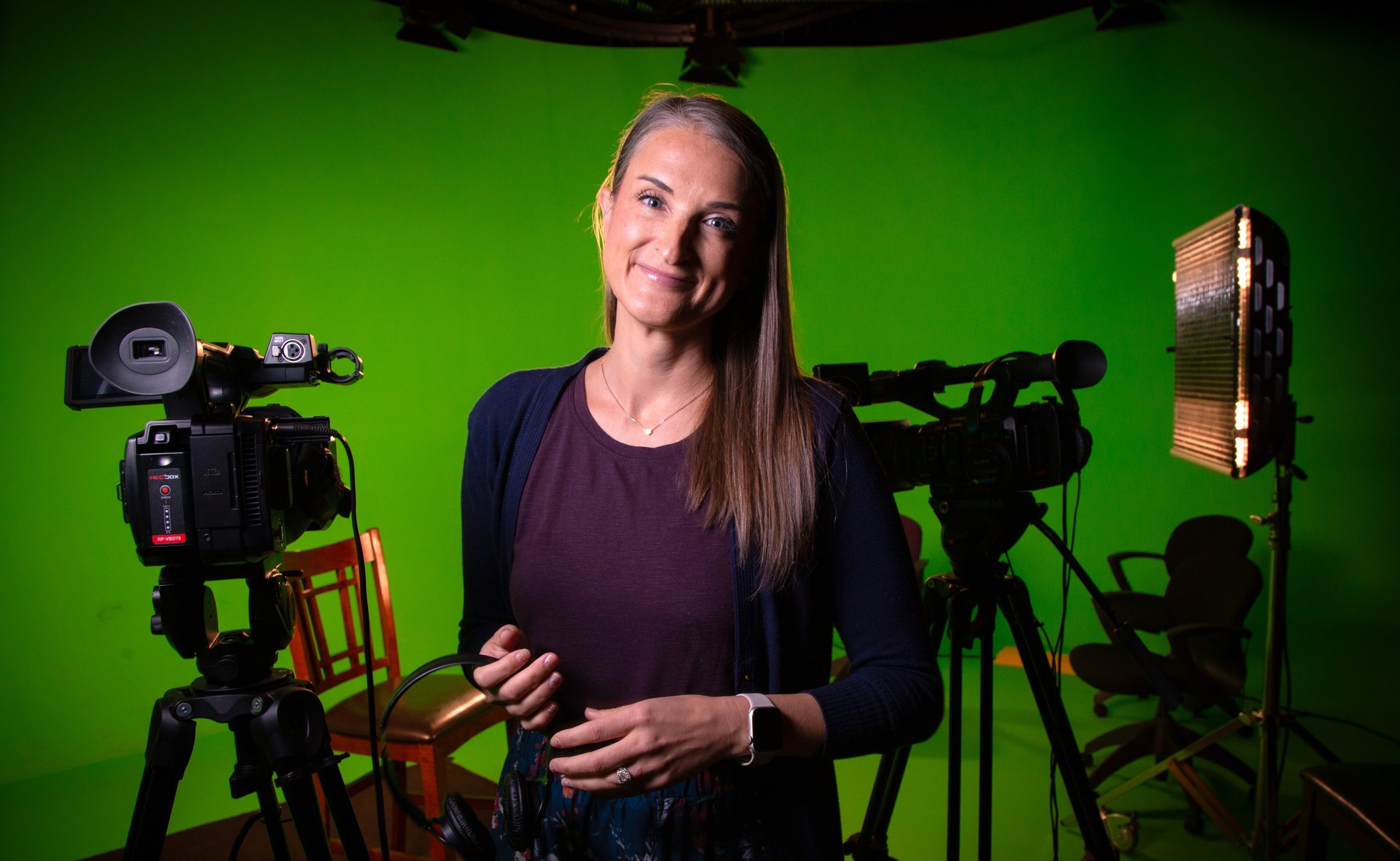
Charity Robinson’s Documentary Production course gives students video production experience while helping nonprofits tell their stories. Photo by Joyce Marshall
Cinema as Service
Action! TCU’s nationally acclaimed documentary production class pairs service learning with hands-on skills development.
Charity Robinson knows she’s not supposed to play favorites. The instructor of film, television and digital media in the Bob Schieffer College of Communication doesn’t pick favorite students or a favorite child. But she confesses to having a favorite class: Documentary Production.
Launched by Robinson in 2016, the class partners students with a Fort Worth-based organization to tell its story in a documentary film that doubles as a service-learning project.
The featured organizations have been dedicated to everything from improving community-police relations to supporting first-generation students to, in the film Underdawgs, empowering individuals with intellectual differences to achieve independence through meaningful employment. Underdawgs tells the inspiring story of Austin Underwood, a man with Down syndrome who runs a hot dog food truck with his family, and how he lives a life of expectations, not limitations.
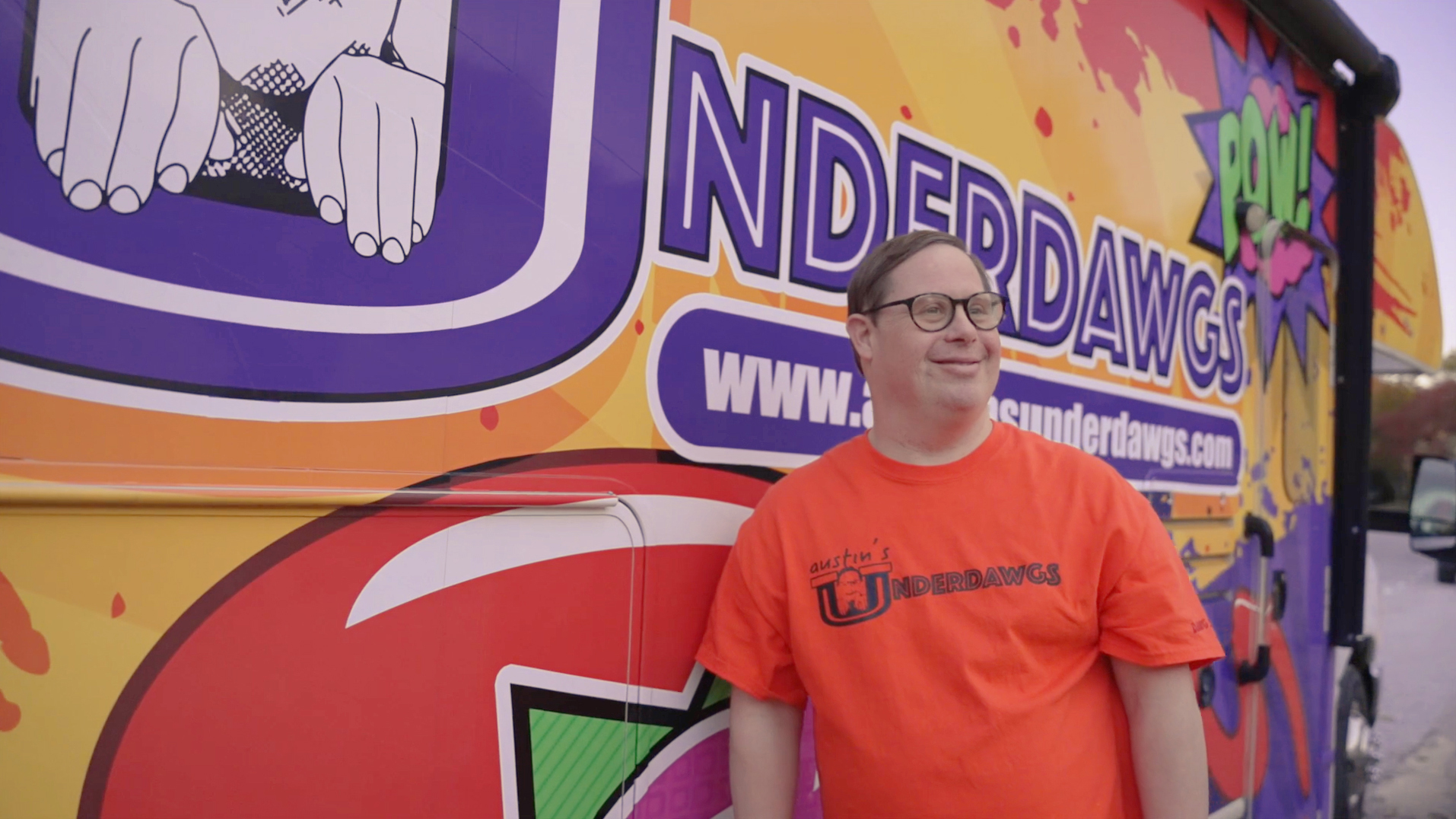
From the film “Underdawgs,” Austin Underwood, a man with Down syndrome, serves customers at his hot dog food truck. The student-produced documentary showcases a life built on expectations, not limitations, highlighting the power of meaningful employment and community support. Courtesy of Charity Robinson
Student productions have won prizes at film festivals, aired on Texas public television stations and earned national acclaim from the Broadcast Education Association. Underdawgs was shown at the National Down Syndrome Congress convention.
Everyone wins, Robinson said. “I not only see the students growing in their filmmaking careers and honing their professional skills, but they also tap into a new skill set, which is becoming an advocate for an important cause in the community.”
Lead Time
Kate Schein, a junior film, television and digital media major, said the Documentary Production course was a perfect fit for her interests and career goals. She started making documentaries in eighth grade and interned with So Fare Films in Rome, where she shot footage around the city and wrote scripts for a docuseries. “I’m passionate about telling real stories and advocating for issues that matter to me,” Schein said. “This class provides a one-of-a-kind opportunity to do just that.”
Before enrolling, students in this upper-level elective have already completed a three-course sequence on film and television production, so they’ve acquired the requisite skills to create a documentary. When the semester starts, they apply for a team role that aligns with their career goals.
There are five leadership roles: director, producer, director of photography, editing lead, and writing and research lead. The remaining students — the class is capped at 12 — staff those teams and the design and marketing team.
“These students are close to graduation,” Robinson said. “This is an opportunity to have industry-relevant experience on their résumé.”
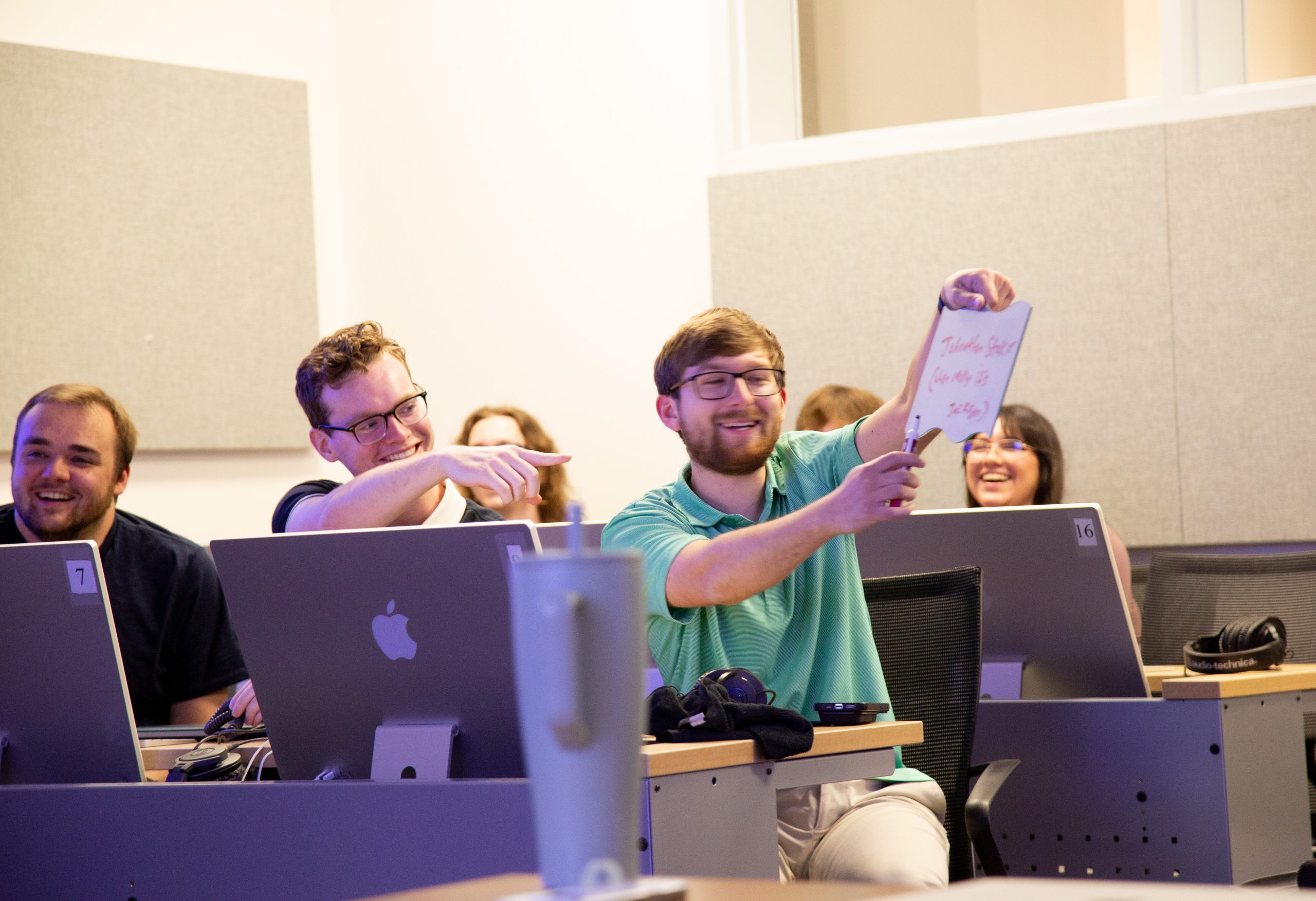
From left, Carson Scott, Jackson James, Dayne Love and Krystal Guerra (background right) work together to create student-produced films in TCU’s Documentary Production class. Photo by Joyce Marshall.
Partners with Purpose
Robinson selects a local organization based on three criteria: Does this organization have the financial means or resources to make a production of this level on its own? Is the subject one Robinson is passionate about? Will the subject resonate with the students? “The work that’s required is above and beyond what a typical workload would be,” she said. “When you’re passionate about something, you’re willing to put more attention and time into it.”
Robinson finds many subjects through word-of-mouth referrals. For Underdawgs, though, she had a personal connection: She has a daughter with intellectual differences who participates in a special education program that the Underwood family was instrumental in establishing.
Class films have included 76105: Dr. King Won’t Rise, which addresses how residents in the Stop Six neighborhood in southeast Fort Worth serve their community by volunteering at local schools, conducting regular clean-ups and working with law enforcement to bolster police relations.
Beloved highlights a grieving mother who becomes an advocate by creating Project Beloved after her daughter’s death. The nonprofit organization provides support to sexual assault survivors across the country and successfully lobbied for Texas legislation that strengthens police reporting requirements for rape cases.
“I was blown away by the TCU students,” said Tracy Matheson, founder of Project Beloved. Her daughter, Molly, 22, was raped and strangled in 2017. “They were so engaged. They had done their research. Their level of professionalism and their commitment to doing their work well were genuine.”
Last spring’s class partnered with the nonprofit Create + Collaborate, which provides opportunities for students transitioning into young adulthood — particularly first-generation college students — through mentoring and leadership training to promote academic, personal and career success.
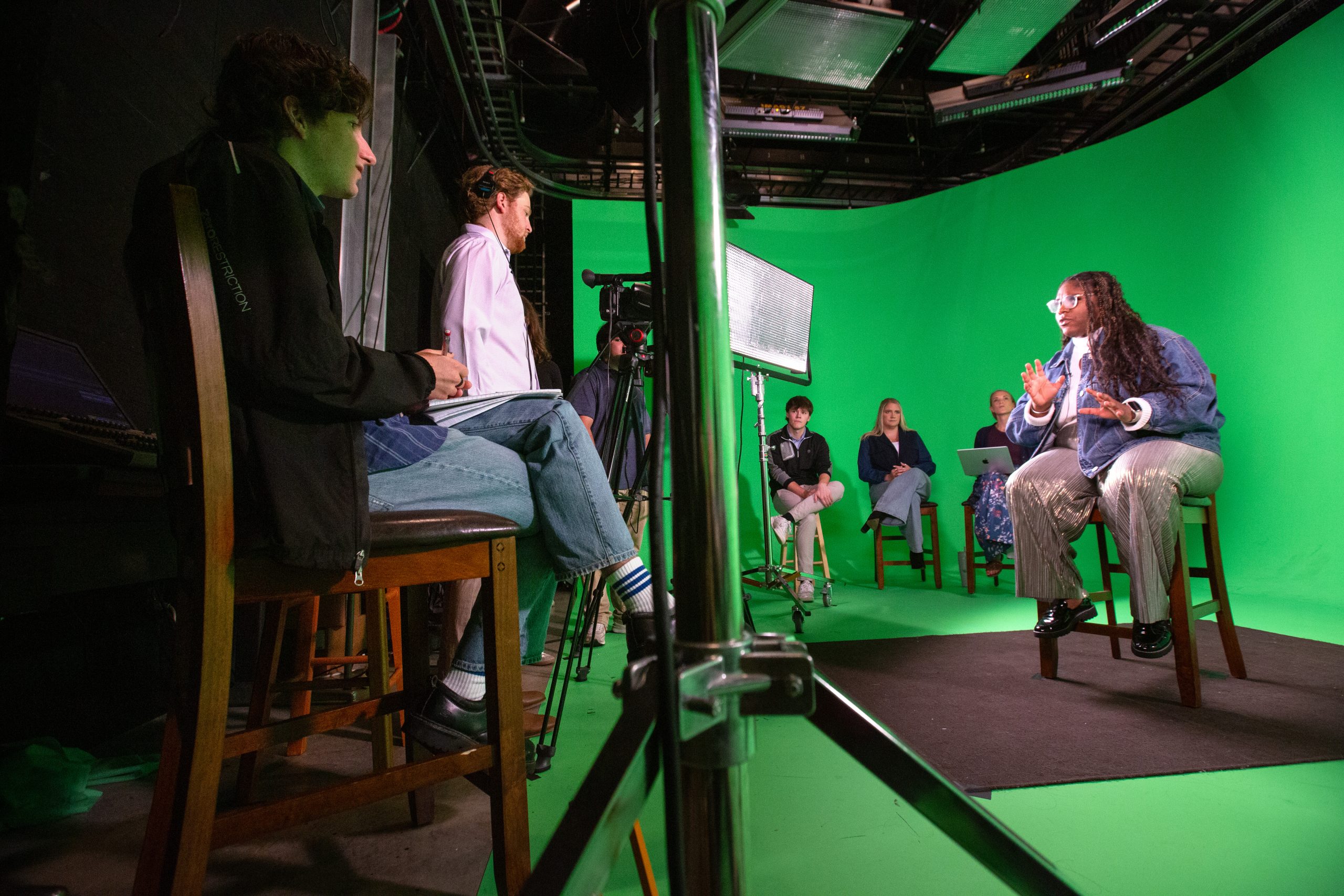
Students in the spring 2025 Documentary Production course work on “Trailblazers: The Create + Collaborate Story.” This unique service-learning class empowers them to tell compelling stories for local nonprofits, honing filmmaking skills while advocating for vital community causes. Photo by Joyce Marshall
Collaboration is Key
Succeeding in the documentary production class distills down to one word: teamwork. “A lot of students haven’t worked in a team on a project of this caliber,” Robinson said. “Everybody has to pull their weight, or it doesn’t come together.”
Each group must define and achieve its milestones in coordination with the other groups. They’re as intricately interconnected as watch gears, with everyone, always, keeping the momentum going.
For example, the information compiled by the research and writing team enables the director and photography team to develop a shot list. They must capture not only interviews and reenacted scenes but also “B-roll,” additional images that will enhance the storytelling, such as the touching Matheson family home videos included in Beloved.
“With a scripted film, you can literally manufacture anything you want,” said Jonathan Stokx ’25, director of Trailblazers: The Create + Collaborate Story, the spring 2025 project scheduled for release in November. “But documentary is real. You have to see how you can best capture the moment rather than manufacture it.”
The editing team selects footage that creates a compelling visual storyline. For Underdawgs, students included childhood images of Austin wearing a Superman T-shirt and running a race in grade school as well as new scenes of him serving customers at his food truck, walking to his job at Campisi’s restaurant and proposing to his girlfriend, Jenny. “My favorite scenes,” Underwood said, “show how I am independent.”
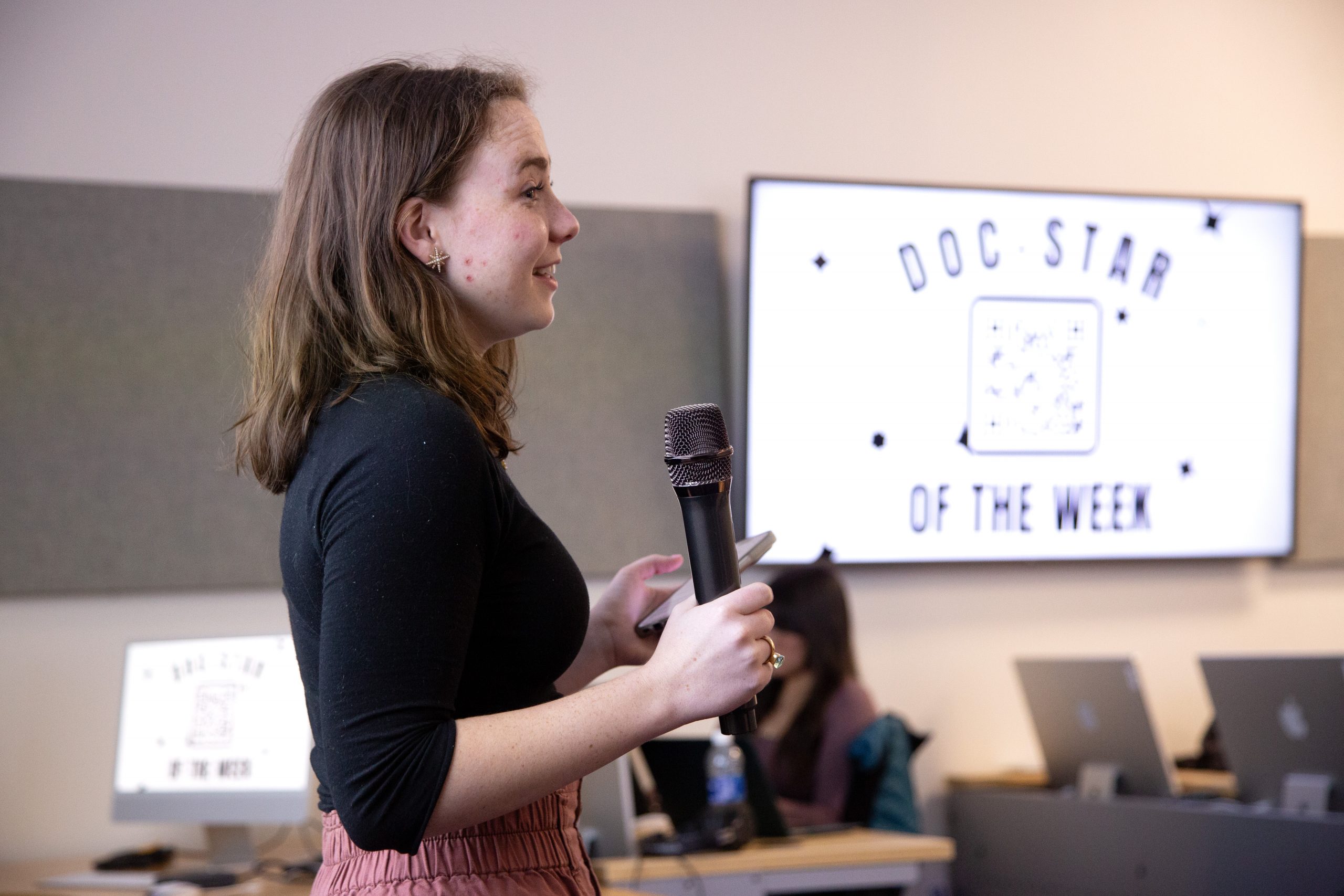
Students highlight their peers’ successes through the “Doc Star of the Week” award. Photo by Joyce Marshall
The design and marketing team uses those visuals to create posters and press kits and place the documentary on FilmFreeway, where filmmakers connect with festivals.
As producer of Trailblazers, Schein was the main contact with the partner organization and the liaison between all team members. “It’s exciting to support everyone in whatever ways they need,” she said, “while also being the one making everything happen logistically.”
Every year, there’s a bottleneck during Week 8, Robinson said. That’s around semester break, when the team is just starting the writing process and hasn’t yet seen any footage, so it’s hard to envision what the film will look like. “The students come to me and ask, ‘How in the world are we ever going to make this happen?’ ”
To build teamwork, production meetings include an icebreaker, such as a round of trivia, as a team-building exercise. In last spring’s classes, the students also voted on a “Doc Star of the Week” to celebrate team members.
Robinson’s nurturing yet empowering nature has made her a favorite instructor of students and alumni of the Bob Schieffer College of Communication. “What stands out the most about Charity is the trust she places in her students,” Schein said. “She is there to guide us every step of the way, but she also gives us the freedom to take the reins and create something that is truly ours.”
Starting the Conversation
Each documentary premieres to a packed house on campus, followed by a community discussion.
One goal of the class is that the conversation about these important causes doesn’t end with the documentary. The featured organizations continue to use the films to share their missions. 76105: Dr. King Won’t Rise was screened at the Fort Worth Martin Luther King Jr. Parade. Underdawgs screened at four film festivals and aired on PBS stations across Texas. Beloved won best documentary at the Panther City Film Festival and is shown by Project Beloved to volunteer groups assembling Beloved Bundles, care packages for sexual assault survivors. “The film will be shown again and again and again,” Matheson said, “because it’s an easy way to open the door to really hard conversations.”
The high quality of the student-produced films earned TCU recognition as a top documentary program from the Broadcast Education Association in 2023 and 2024. “That recognition is incredible, because this program is something I am incredibly passionate about,” Robinson said. “I’m thankful that the hard work of these students has been recognized.”
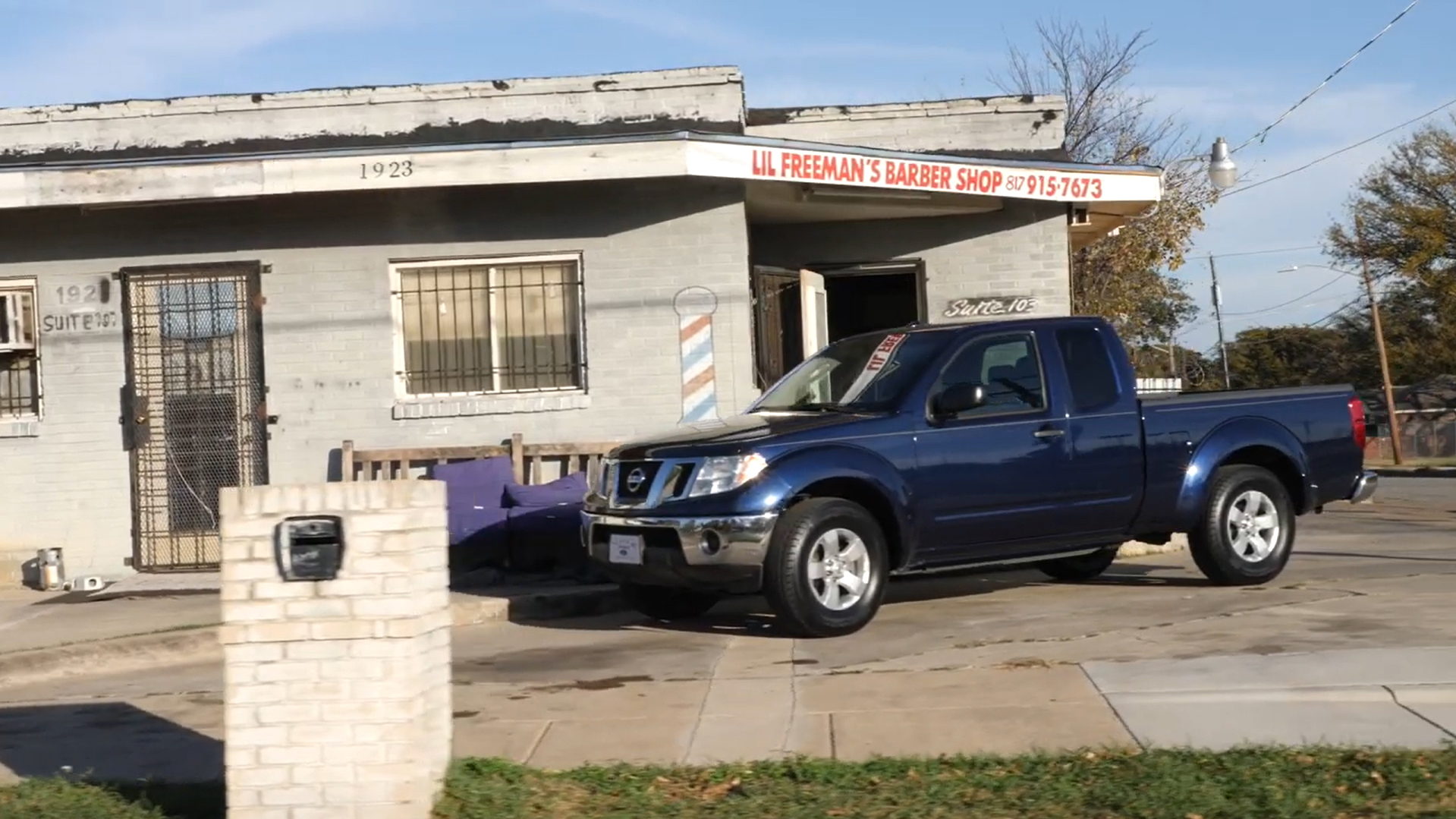
Students captured the heart of Fort Worth’s Stop Six neighborhood for the film “76105: Dr. King Won’t Rise.” Courtesy of Charity Robinson
That reputation attracts even more students to the Documentary Production class, and it benefits alumni seeking careers in the field, such as Noelle Siwek ’24, the producer of Underdawgs.
“The class totally changed the direction of my career path,” said Siwek, who is working as a freelancer for several production companies. “I’m passionate about pursuing a career in documentary production because of the stories that get to be told there. I believe filmmaking is a gift, and it is to be used to inspire and instill hope in things worth believing in.”

Your comments are welcome
Comments
Related reading:
Alumni
Flipping the Scripts
From thrillers to Hallmark, Emily Moss Wilson is making it in the movie business.
Features
Private: Lights, Camera, Horned Frogs
TCU steps into the spotlight for Taylor Sheridan’s Landman.
Research + Discovery
Screen Studies
Kimberly Owczarski, TCU film professor, blends academic rigor with industry relevance, fostering student creativity and adaptability in the ever-evolving media landscape.